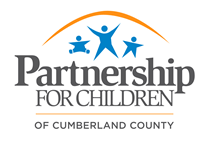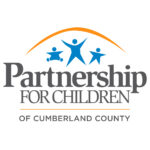The Family Focus Guide helps families and individuals in and around the Fayetteville area find resources in our community.
If you have a service-focused organization that serves families in the Fayetteville, Cumberland County area and would like to be listed, please email us at [email protected].
ABCD is an intervention in primary-care physician offices.[1] An ABCD staff person provides technical assistance and/or support to deliver high-quality comprehensive primary health care, including medical professionals’ use of standardized, validated, developmental and behavioral screening tools. If a developmental disability, delay, or other concern is identified through the screening process, a referral is made to connect the family with the services and resources needed for their child.
Assists families in finding, deciding on, and using quality child care.
Friday 8-12 Noon
28303
The Autism Society of Cumberland County will provide family support services to children suspected of or diagnosed with Autism Spectrum Disorders (ASD) in Cumberland County. This activity will serve children ages B-5 and their siblings with the Circle of Parents Curriculum. Support services provided may include resource, referral, parent education, support groups, workshops, conference scholarships, monthly newsletters, or resource directories
Dolly Parton’s Imagination Library is an early literacy program that mails age-appropriate books to registered children on a monthly basis. The books are mailed in the child's name in an effort to create a sense of excitement about getting new books. Children can receive the books from birth to their fifth birthday, regardless of family income. DPIL is often coordinated through a local nonprofit organization, such as a library. The sponsoring organization selects a geographic area to target for book distribution and raises the funds to cover the cost of the books. Parents can also register children online.
Kindermusik will provide one-on-one training and coaching in utilizing music in daily lesson plans by modeling during 7 weekly sessions for classes of at-risk pre-kindergarten children and their teachers. Each teacher and child will receive Kindermusik curriculum materials including a parent/child magazine/book with story and CD allowing parents and children to build upon classroom experiences. Preschool teachers/assistants will learn methods through observing all class presentations so that concepts and musical activities can be integrated into the teacher’s daily lesson plans. The music professional/licensed Kindermusik Instructor will explore ideas and help develop activities with the preschool teacher utilizing music through numbers, shapes, colors, and letters; explore ways to share music in the child's world in the classroom and at home; and may provide follow-up consultation with preschool teachers to explore ways of enhancing daily experiences with the children. Music Therapy will be provided through one-on-one training and mentoring to improve teacher practice by a contracted Music Therapist for special needs infants, toddlers, and preschoolers at Dorothy Spainhour and special needs preschoolers in Early Intervention classes. Each infant and toddler teacher and child will receive Kindermusik curriculum materials including parent/child book and CD allowing teachers, parents and children to build upon classroom experiences. If funding is available, children ages 3 and 4 at Dorothy Spainhour may receive a Kindermusik home kit.
The Nurturing Parenting Programs are family-based programs that can be offered in a group setting, in a home-visiting setting, or as a combination of both group meetings and home visitation.[1] Components of the program include 1) developing empathy, facilitating parent-child bonding and attachment; 2) teaching parents appropriate expectations of children’s growth, particularly ways to promote children’s feelings of self-worth, trust, and security; 3) employing discipline that promotes the dignity of children and adults; 4) empowering adults and children to nurture themselves, others, and their environment; 5) promoting positive self-worth; and 6) helping all family members develop a meaningful level of selfawareness and acceptance. Parent education programs that are designed to prevent the development of poor parenting behaviors are short-term, approximately five to 18 sessions in length. Parenting intervention programs are designed to “intervene” to prevent escalation in the early stages of maltreatment. These are generally from 12 to 20 sessions. Parenting treatment programs are designed to “treat” abusive and neglectful parent-child or parent-teen dysfunctional interactions. These are generally 15 to 25 sessions.
The Nurturing Parenting Programs are family-based programs that can be offered in a group setting, in a home-visiting setting, or as a combination of both group meetings and home visitation.[1] Components of the program include 1) developing empathy, facilitating parent-child bonding and attachment; 2) teaching parents appropriate expectations of children’s growth, particularly ways to promote children’s feelings of self-worth, trust, and security; 3) employing discipline that promotes the dignity of children and adults; 4) empowering adults and children to nurture themselves, others, and their environment; 5) promoting positive self-worth; and 6) helping all family members develop a meaningful level of selfawareness and acceptance. Parent education programs that are designed to prevent the development of poor parenting behaviors are short-term, approximately five to 18 sessions in length. Parenting intervention programs are designed to “intervene” to prevent escalation in the early stages of maltreatment. These are generally from 12 to 20 sessions. Parenting treatment programs are designed to “treat” abusive and neglectful parent-child or parent-teen dysfunctional interactions. These are generally 15 to 25 sessions.
Plans, adminsters, and advocates services for young children and their families. Provides funding for programs and services for young children under six years of age and their families, and access to high-quality and affordable childcare, health care, and other critical family services.
Friday 8-12 Noon
PFC Family Resource Center creates a collaborative relationship maximizing community resources that meet the needs of children and families which include better access to services, information, resources, and needs identified in studies conducted by the Partnership for Children (PFC) and other community efforts. Our Information Referral Assistant (IRA) is available to answer telephone calls for each agency and provides information related to those agencies as a point of contact; whenever possible, greets and assists visitors. Office equipment is available to our partners & non-profit agencies at a competitive price.
Reach Out and Read works through medical provider offices to promote early literacy and school readiness with the distribution of new books to children starting at the six-month checkup, and by talking with parents about the importance of reading aloud to their children. Reach Out and Read utilizes the relationship between parents and medical providers to encourage the development of critical early reading skills in young children.
The Easterseals UCP Dorothy Spainhour Child Development Center provides quality early care and education services for children from six weeks to 5 years old. Although Easterseals UCP is known for its work with children with disabilities, this children’s center provides an inclusive program for typical learners as well as children with special needs. Our center is licensed through NC Division of Child Development Early Education as a 5 star center with special Developmental Day Certification. This program is also an NC Pre-k site for Cumberland County.
The Child Care WAGE$ Project provides education-based salary supplements to low-paid teachers, directors, and family child care providers working with children between the ages of birth and five. The project is designed to provide preschool children more stable relationships with better-educated teachers by rewarding teachers’ educational advancement and continuity of teachers in child care situations.



